The phrase is sometimes quoted as "In Dreams Begin Responsibilities," the title of a frequently anthologized short story by Delmore Schwartz. In one of the PBS American Masters series documentaries, the rock musician Lou Reed (a former student of Schwartz), talks about the influence the poet and writer had on him as an artist. Reed calls it "the best short story I'd ever read."
I haven't yet read it, but would like to now. Wikipedia summarizes this way:
The story tells of an unnamed young man who has a dream that he is in an old-fashioned movie theater in 1909. As he sits down to watch the film, he starts to realize that it is a motion picture documenting his parents' courtship. The black-and-white silent film is of very poor quality, and the camera is shaky, but nonetheless he is engrossed. Soon the young man starts to get upset. He yells things at the screen, trying to influence the outcome of his parents' courtship and the other people in the audience begin to think he is crazy. Several times the character breaks down. In the end he shouts at his parents when it appears they are going to break up, and he is dragged out of the theater by an usher who reprimands him. The animadversion is important to the story, as it reveals a bit of the character's insecurity. In the end, the character wakes up from his dream and notes that it is the snowy morning of his twenty-first birthday.
(Schwartz's own parents divorced when he was nine, an event that is said to have had a profound impact on him.) LOVE this pic of Delmore at an angle in his chair, with all those books at angles and odds, too. And this other photo of him with his bookish cohort.
Here is Yeats' poem:
"In dreams begins responsibility."
Old Play.
Old Play.
"How am I fallen from myself, for a long time now
I have not seen the Prince of Chang in my dreams."
Khoung-fou-tseu.
I have not seen the Prince of Chang in my dreams."
Khoung-fou-tseu.
PARDON, old fathers, if you still remain
Somewhere in ear-shot for the story's end,
Old Dublin merchant "free of ten and four"
Or trading out of Galway into Spain;
And country scholar, Robert Emmet's friend,
A hundred-year-old memory to the poor;
Traders or soldiers who have left me blood
That has not passed through any huxter's loin,
Pardon, and you that did not weigh the cost,
Old Butlers when you took to horse and stood
Beside the brackish waters of the Boyne
Till your bad master blenched and all was lost;
You merchant skipper that leaped overboard
After a ragged hat in Biscay Bay,
You most of all, silent and fierce old man
Because you were the spectacle that stirred
My fancy, and set my boyish lips to say
"Only the wasteful virtues earn the sun ";
Pardon that for a barren passion's sake,
Although I have come close on forty-nine
I have no child, I have nothing but a book,
Nothing but that to prove your blood and mine.
Somewhere in ear-shot for the story's end,
Old Dublin merchant "free of ten and four"
Or trading out of Galway into Spain;
And country scholar, Robert Emmet's friend,
A hundred-year-old memory to the poor;
Traders or soldiers who have left me blood
That has not passed through any huxter's loin,
Pardon, and you that did not weigh the cost,
Old Butlers when you took to horse and stood
Beside the brackish waters of the Boyne
Till your bad master blenched and all was lost;
You merchant skipper that leaped overboard
After a ragged hat in Biscay Bay,
You most of all, silent and fierce old man
Because you were the spectacle that stirred
My fancy, and set my boyish lips to say
"Only the wasteful virtues earn the sun ";
Pardon that for a barren passion's sake,
Although I have come close on forty-nine
I have no child, I have nothing but a book,
Nothing but that to prove your blood and mine.
January 1914.
That's a long way from Martin Luther King's "I Have a Dream" speech, and from the headaches facing Obama. The common theme? Something to do with legacy, with the traces of history inherited from one's forebears. The specific challenge of shouldering the burden of "the dream," in all of its ambiguity. The film of the past ("screen memories," as Freud would describe them) that affect our Ability to Respond. The sense of "falling from oneself." The desire to affect both chance and change, and to avoid squandering energy on barren passions.
As Martin Luther King, Jr. put it in a letter from the Birmingham jail:
































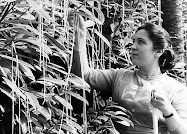



























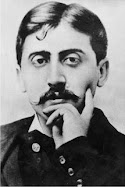






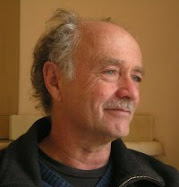











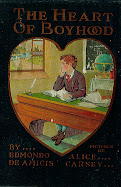
















































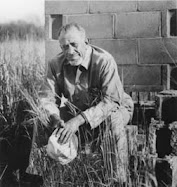









.jpg)














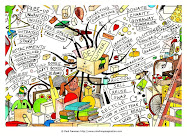






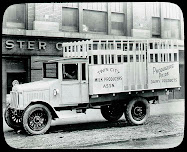



































































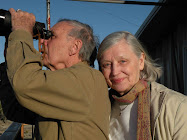
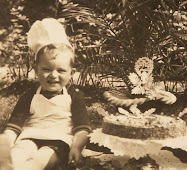














































.jpg)








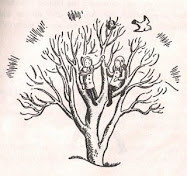







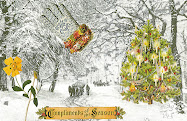



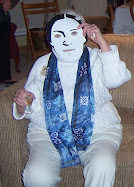




















































































3 comments:
Before I'd ever heard of Delmore Schwartz, or the story of his that you refer to here, or of Yeats's poem, I found a book of poems by Michael S. Harper titled "In Nightmare Begins Responsibility." As I recall, Harper mentions Schwartz in dedications to one or two of the poems.
It was sometime after that that I found a selection of Schwartz's poems published by New Directions. I think I still have it, though it would take me some looking in the moderate chaos of books here.
None of Schwartz's poems have stayed with me really, and none of the poems in Harper's book, though Harper's title comes back to me frequently. I always think of it as the "real" title even though he obviously borrowed and took his own turn with it. (I love Harper's first book of poems, "Dear John, Dear Coltrane.")
Not sure if I might have mentioned previously here the book "Poets In Their Youth" by Eileen Simpson, her memoir of her marriage with poet John Berryman -- they were married from sometime in the late 1940's to sometime in the 1950's -- and many of the other poets and writers they knew as friends and colleagues.
I found the book wonderful as a way of getting a feeling for the poetry world of those years. The book includes a number of photos of the various people Simpson tells about, and includes the amazing group photo you've posted here, surely one of the most astounding gatherings of poets and writers in one room during that time.
I've read, of course, many of the poets of those years, though until I read Simpson's memoir I'd never had a real sense of how, or how much, all of them knew each other and were woven into each other's lives.
This is maybe somewhat of a tangent away from where you've gone in your post here. The mention of Delmore Schwartz, and the photo, just took me places.
Thanks so much Lyle: yes, thanks to you (in an earlier comment) I found Eileen Simpson's memoir and read it. I will write more about that someday. It's an absolutely remarkable book, on so many levels: for being a history of that time (which seems at times so remote to us), and for describing so richly the experience of living with someone as unique and challenging (and sensitive)as John Berryman. She tells the story with such compassion and dignity, too, unlike the strategies of memoir writers who exploit the dramas of their lives to unkind effect. I love that book. And John and Eileen really loved Delmore Schwartz. Entwined lives. What a remarkable woman – and writer – she was, with exceptional respect for the value of the kind of poetry – the kind of language, and story – they were working to create.
PS And thanks for pointing in the direction of Michael S. Harper's book, too.
Post a Comment